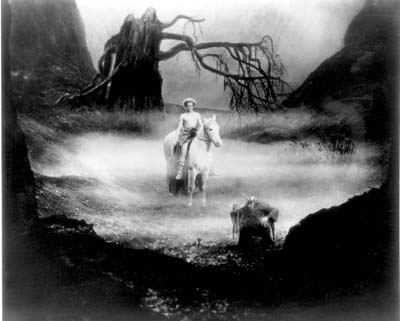From the Chicago Reader (January 5, 1990). — J.R.

As a moviegoer who was privileged to see a good many films, both new and old, in a number of contexts, places, and formats in 1989, I can’t say it was a bad year for me at all. I saw two incontestably great films at the Rotterdam film festival (Jacques Rivette’s Out 1: Noli me tangere and Joris Ivens and Marceline Loridan’s A Story of the Wind), and several uncommonly good ones both there and at the festivals in Berlin, Toronto, and Chicago. (Istvan Darday and Gyorgyu Szalai’s The Documentator and Jane Campion’s Sweetie — the latter due to be released in the U.S. early this year–are particular standouts.) Thanks to the increasing availability of older films on video, I was able to catch up with certain major works that I’d missed and see many others that I already cherished.
But considering only the movies that played theatrically for the first time in Chicago, I have to admit that it was a discouraging year. In fact, 1989 was the worst year for movies that I can remember, particularly when it comes to U.S. releases. Gifted filmmakers are granted less and less freedom as the Hollywood studios are taken over by conglomerates and European films are set up as international coproductions — both trends that have been in process for some time now; and the grim consequences of these changes become much more apparent when one takes a long backward look rather than when one considers the immediate surface effects of movies on a week-by-week basis. Read more
The following text, a late addition to this web site, was copied almost verbatim (apart from the correction of typos) from the laptop of the late Peter Thompson, thanks to the help of his widow, Mary Dougherty. — J.R.
Jonathan Rosenbaum, “Talking to Strangers: A Look at Recent American Independent Cinema”, ARTPAPERS, Vol. 13, No. 5, September/October 1989, pp. 6-10.
The following article is excerpted from a lecture given on June 15, 1989 in Lisbon, Portugal, at a seminar organized for the Luso-Americanos de Arte Contemporanea at the Fundacao Calouste Gulbenkian to introduce screenings of a dozen recent American independent films selected by Richard Peña and myself. Peña and Jon Jost also gave lectures at the same seminar — the former offered a broad history of independent filmmaking in the U.S., while the latter gave a subjective account of his own experiences as an independent filmmaker — followed by interventions from Portuguese critics.

It is virtually impossible to treat recent American independent film as a unified, homogeneous body of work. While there has been an unfortunate tendency in academic criticism to treat Italian neo-realism. the French nouvelle vague, or Hollywood films during any particular decade as if they had homogeneity and unity, such an effort can be made only if one views the work incompletely and superficially, and this is perhaps even more true with an unwieldy category such as American independent film. Read more
Written for Cineaste (I forget which issue).
Letters from Hollywood:
1977-2017
by Bill Krohn. Albany: State University of New York Press, 2020. 312 pp., illus. Hardcover: $95.00.
Long overdue, this impressive if pricey collection by the long-standing —indeed, longest-standing — American correspondent for Cahiers du cinéma is eclectically divided into four sections. After an Introduction consisting of a new five-page memoir (“How I Became the Los Angeles Correspondent for Cahiers du cinema”), a fascinating 25-page interview with Serge Daney (then the magazine’s editor) from 1977, entitled “The Tinkerers”, and a brief 1992 obituary for Daney, one encounters “Directors Who Started in Silents” (ten essays), “Directors Who Started in Talkies” (seven essays), “Directors Who Started in Television” (seven essays), and “Directors Who Counterattacked” (ten essays).
These classifications can’t do justice to all that the book has to offer: even if one can puzzle out what Krohn means by “counterattack,” the first “director” he treats who “started in television” is Lucille Ball, justly celebrated for I Love Lucy rather than as a director, and someone whose career as a performer, as Krohn shows, actually began in theater, movies, and radio. But they do point up how original Krohn’s way of positioning himself often turns out to be. Read more



